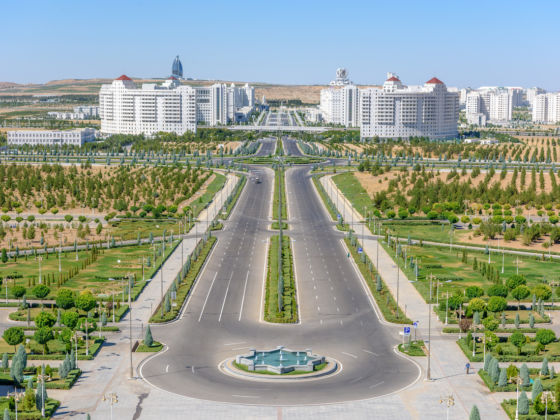It was a given that I would go to Turkmenistan and something strange would happen.
The main thing I knew about Turkmenistan was that it was often compared to North Korea, which, for me, was a selling point. I wanted to see an authoritarian regime up close, to see if brainwashing and erratic behavior really fooled people. Did the country run on cathartic conversations that took place behind closed doors and a population outwardly smiling and inwardly planning a rebellion?
